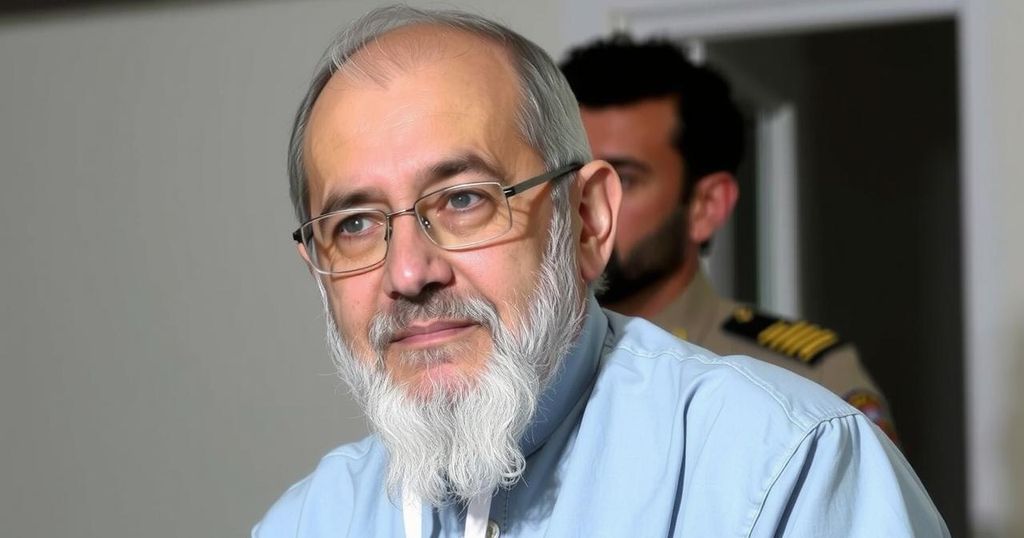Italy Releases Iranian National Wanted by U.S. Over Drone Attack

Italy has released Iranian man Mohammad Abedini, wanted by the U.S. over a deadly drone attack in Jordan. Abedini’s release follows the Italian Minister of Justice’s intervention due to lack of recognizable charges under Italian law. His return to Iran occurs after significant diplomatic engagements involving the U.S. and Iran.
On Sunday, Italy released an Iranian national, Mohammad Abedini, who was wanted by the United States due to his alleged involvement in a drone attack in Jordan that resulted in the deaths of three American soldiers in January 2024. Following a request from Italy’s Minister of Justice, a court decided to revoke Abedini’s arrest warrant. Upon his release, he returned to Iran as reported by Iranian state television. His release coincided with the ongoing legal proceedings concerning his bid for house arrest while pending extradition to the U.S., which were scheduled for a hearing at a court in Milan.
Abedini was apprehended under a U.S. warrant on December 16, 2023, shortly before the detention of Italian journalist Cecilia Sala in Iran, who was believed to have been held as a tool for negotiations regarding Abedini’s release. Sala returned to Italy last week, highlighting the complexities of diplomatic relations at play. The U.S. Department of Justice has claimed that Abedini supplied drone technology used in the January attack, intensifying allegations against him.
The Italian Ministry of Justice clarified that, according to existing extradition treaties between Italy and the United States, only crimes recognized by both legal systems can warrant extradition. In this instance, the charge against Abedini relating to violations of the International Emergency Economic Powers Act, a U.S. federal law, was not acknowledged as a crime under Italian law. Following discussions between Iran’s foreign ministry and Italian intelligence officials, the decision for Abedini’s release was made, illustrating the intricate diplomatic negotiations.
Italy’s Prime Minister Giorgia Meloni acknowledged a “diplomatic triangulation” involving both Iran and the United States as crucial to the outcomes of Sala’s release and Abedini’s return, confirming that U.S. interests were part of the negotiations. Her statement emphasizes the role of international diplomacy in resolving complicated cases involving nationals from multiple countries.
The incident involving Mohammad Abedini highlights the intertwining of international diplomacy, legal proceedings, and national security. His alleged involvement in supplying drone technology used in a fatal attack on U.S. troops in Jordan puts him at the center of a significant geopolitical dispute. The complexities of extradition treaties, particularly those involving crimes recognized by both jurisdictions, play a pivotal role in Abedini’s legal situation in Italy. Additionally, the case draws attention to Italy’s interactions with Iran and the United States, especially amid concerns over hostage negotiations that often occur in diplomatic relations.
In summary, Italy’s release of Iranian citizen Mohammad Abedini underscores the complexity of international legal and diplomatic negotiations. The case involved significant allegations from the U.S. government regarding his role in a deadly drone attack. However, Italy’s justice system ruled that the charges against Abedini did not correspond to any offenses recognized under Italian law, underpinning the legal limitations in extradition cases. This situation showcases the delicate balance of international relations, particularly between Italy, Iran, and the United States, as diplomatic efforts continue.
Original Source: www.theguardian.com








